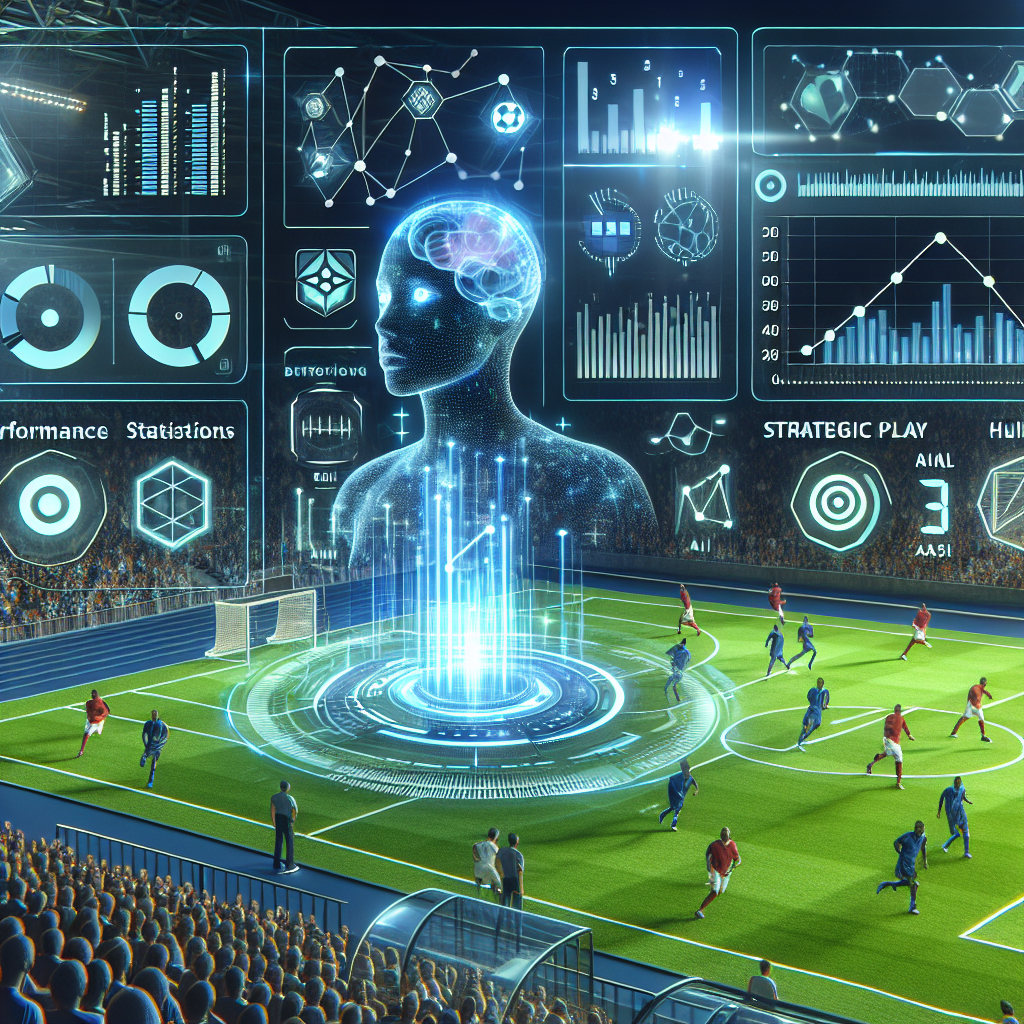Artificial intelligence (AI) is revolutionizing the world of sports analytics, enhancing performance and strategy for athletes, coaches, and teams across a wide range of sports. By harnessing the power of AI, sports organizations are able to gather and analyze vast amounts of data in real-time, providing valuable insights that can help improve player performance, optimize training programs, and develop winning strategies. In this article, we will explore how AI is being used in sports analytics and the potential benefits it offers to the world of sports.
AI in Sports Analytics: How it Works
AI in sports analytics involves the use of advanced algorithms and machine learning techniques to analyze data collected from various sources, such as wearable devices, video footage, and performance metrics. These algorithms are capable of processing and interpreting large volumes of data quickly and accurately, providing coaches and athletes with valuable insights that can help them make informed decisions and improve their performance.
One of the key ways that AI is being used in sports analytics is through the analysis of player performance data. By tracking metrics such as speed, acceleration, heart rate, and other performance indicators, AI algorithms can help coaches and trainers identify areas where athletes can improve and tailor training programs to address specific weaknesses. For example, AI can analyze an athlete’s running technique and provide feedback on how to improve their form to maximize efficiency and reduce the risk of injury.
In addition to analyzing individual player performance, AI can also be used to analyze team dynamics and strategy. By tracking the movements of players on the field or court, AI algorithms can identify patterns and trends that can help coaches develop winning game plans and make strategic adjustments in real-time. For example, AI can analyze the positioning of players during a soccer match and recommend changes to formation or tactics to exploit weaknesses in the opposing team’s defense.
Benefits of AI in Sports Analytics
The use of AI in sports analytics offers a wide range of benefits to athletes, coaches, and teams. Some of the key advantages of using AI in sports analytics include:
1. Improved Performance: By analyzing performance data and providing personalized feedback, AI can help athletes optimize their training programs and improve their skills. This can lead to better performance on the field or court and help athletes reach their full potential.
2. Enhanced Strategy: AI can help coaches develop winning game plans by analyzing data and identifying patterns and trends that can be used to outsmart the competition. This can give teams a competitive edge and increase their chances of success.
3. Injury Prevention: By monitoring performance metrics and detecting signs of fatigue or overtraining, AI can help prevent injuries and keep athletes healthy and in peak condition. This can help athletes stay on the field and perform at their best for longer periods of time.
4. Real-Time Insights: AI algorithms can analyze data in real-time, providing coaches with immediate feedback and insights that can be used to make strategic decisions during games or training sessions. This can help teams adapt to changing conditions and make adjustments on the fly.
5. Data-Driven Decisions: AI in sports analytics allows coaches and athletes to make data-driven decisions based on objective analysis rather than gut instincts. This can lead to more informed and effective decision-making, resulting in better outcomes for teams and individuals.
FAQs about AI in Sports Analytics
Q: How is AI used in sports analytics?
A: AI is used in sports analytics to analyze data collected from various sources, such as wearable devices, video footage, and performance metrics. AI algorithms process and interpret this data to provide insights that can help improve player performance, optimize training programs, and develop winning strategies.
Q: What are some examples of AI in sports analytics?
A: Some examples of AI in sports analytics include analyzing player performance data to identify areas for improvement, tracking team dynamics to develop winning game plans, and monitoring performance metrics to prevent injuries and optimize training programs.
Q: What are the benefits of using AI in sports analytics?
A: The benefits of using AI in sports analytics include improved performance, enhanced strategy, injury prevention, real-time insights, and data-driven decisions. AI can help athletes reach their full potential, give teams a competitive edge, keep athletes healthy, provide immediate feedback, and support informed decision-making.
Q: How can athletes and teams implement AI in sports analytics?
A: Athletes and teams can implement AI in sports analytics by partnering with technology companies that specialize in sports analytics, investing in AI-powered tools and software, and integrating AI into their training programs and game strategies. By leveraging the power of AI, athletes and teams can gain a competitive advantage and achieve success in their respective sports.
In conclusion, AI is transforming the world of sports analytics, enhancing performance and strategy for athletes, coaches, and teams. By harnessing the power of AI algorithms and machine learning techniques, sports organizations are able to analyze data in real-time, provide personalized feedback, and make data-driven decisions that can lead to improved performance and competitive success. As AI continues to evolve and become more sophisticated, the possibilities for its application in sports analytics are virtually limitless, offering athletes and teams a powerful tool for achieving their goals and reaching new heights of success.

